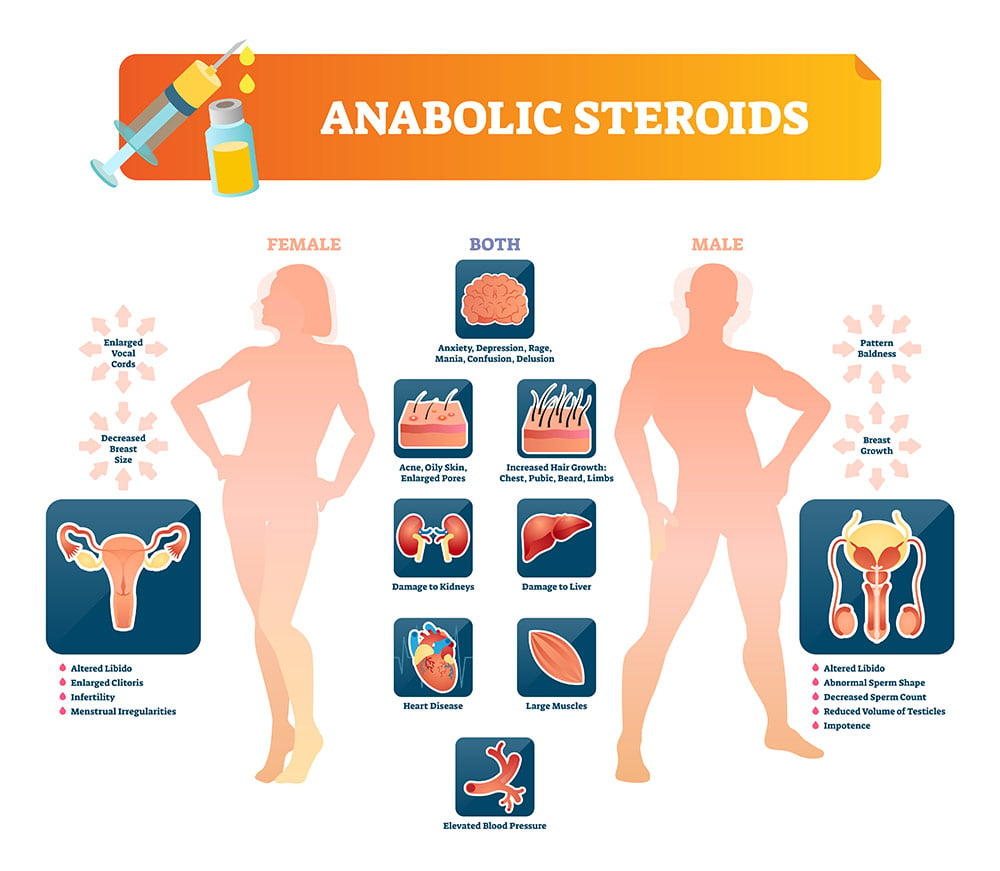01dragonslayer
Ripped
- Jacked Cash
- 537,260
Doctors admit we know too little about anabolic steroids
Users of anabolic steroids don't care much about the expertise of doctors when it comes to steroids. That's known. In this regard, you will not learn nothing new from the research that Stephanie Hill, affiliated with York Hospitals NHS Foundation Trust in the United Kingdom, published in Therapeutic Advances in Drug Safety. But Hill also discovered that doctors agree with the steroids users - and think that they do not know enough about steroids to help users.
Study
The researchers interviewed 134 doctors and 216 steroids users. Most doctors worked in the same hospital as the researchers, while the researchers recruited the steroids users via the social media Facebook and Instagram.
Results
58 percent of the steroids users did not have themselves examined by a doctor before, during or after an steroid cure. Approximately two-thirds of users thought that doctors could not correctly interpret the results of the test, and 55 percent feared a doctor reprimand.
Not surprisingly, three-quarters of the users were negative about previous contacts with a doctor.
A large majority of doctors who were surveyed by the researchers said they had little knowledge of steroids.
98 percent of doctors said they had learned nothing about anabolic use by bodybuilders during their training, 80 percent said they did not know which tests were needed to determine the health of anabolic steroids users - let alone how tot interpret them.
ast but not least, two thirds of the doctors were of the opinion that health care should not have to pay for the costs of the tests for steroids users.
Conclusion
"The present study has highlighted important perceptions within the body-building community that create obstacles to them accessing healthcare or laboratory monitoring during anabolic steroids treatment, mainly related to fear of criticism or judgement", the researchers summarize.
"Doctors themselves do not feel adequately confident in their knowledge of anabolic steroids, which may result in them providing inaccurate or incomplete information, further undermining patient trust."
"Improving knowledge of the pharmacological actions and adverse effects of anabolic steroids within the medical community is important in establishing a clearer consensus approach to addressing healthcare needs in this patient group, including a more uniform approach to laboratory analyses."
Source: Ther Adv Drug Saf.
Users of anabolic steroids don't care much about the expertise of doctors when it comes to steroids. That's known. In this regard, you will not learn nothing new from the research that Stephanie Hill, affiliated with York Hospitals NHS Foundation Trust in the United Kingdom, published in Therapeutic Advances in Drug Safety. But Hill also discovered that doctors agree with the steroids users - and think that they do not know enough about steroids to help users.
Study
The researchers interviewed 134 doctors and 216 steroids users. Most doctors worked in the same hospital as the researchers, while the researchers recruited the steroids users via the social media Facebook and Instagram.
Results
58 percent of the steroids users did not have themselves examined by a doctor before, during or after an steroid cure. Approximately two-thirds of users thought that doctors could not correctly interpret the results of the test, and 55 percent feared a doctor reprimand.
Not surprisingly, three-quarters of the users were negative about previous contacts with a doctor.
A large majority of doctors who were surveyed by the researchers said they had little knowledge of steroids.
98 percent of doctors said they had learned nothing about anabolic use by bodybuilders during their training, 80 percent said they did not know which tests were needed to determine the health of anabolic steroids users - let alone how tot interpret them.
ast but not least, two thirds of the doctors were of the opinion that health care should not have to pay for the costs of the tests for steroids users.
Conclusion
"The present study has highlighted important perceptions within the body-building community that create obstacles to them accessing healthcare or laboratory monitoring during anabolic steroids treatment, mainly related to fear of criticism or judgement", the researchers summarize.
"Doctors themselves do not feel adequately confident in their knowledge of anabolic steroids, which may result in them providing inaccurate or incomplete information, further undermining patient trust."
"Improving knowledge of the pharmacological actions and adverse effects of anabolic steroids within the medical community is important in establishing a clearer consensus approach to addressing healthcare needs in this patient group, including a more uniform approach to laboratory analyses."
Source: Ther Adv Drug Saf.






